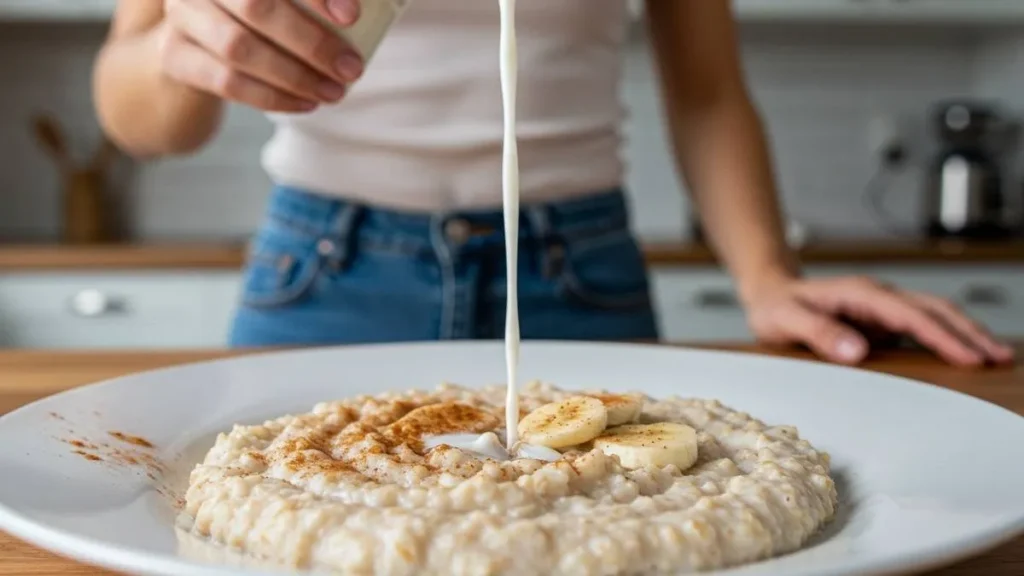Its richness in B vitamins, iron, magnesium, and zinc makes it a fundamental pillar of a balanced diet.
Opting for milk, whether animal or plant-based, to make your oatmeal provides a creamy texture and a more indulgent flavor.
Cow’s milk, for example, provides an extra dose of high biological value protein, calcium, and vitamin D (if fortified), essential nutrients for bone and muscle health. For those looking for a more filling breakfast with a higher calorie and protein content, milk can be the ideal choice, especially when combined with an active lifestyle or if you’re looking to increase muscle mass.
However, milk also adds calories and fat, which can vary significantly depending on the type (whole, skimmed, or semi-skimmed). Additionally, lactose intolerance or milk protein allergies are important factors to consider.
For those following vegan or vegetarian diets, plant-based milks such as almond, soy, oat, or coconut are excellent alternatives, although it’s crucial to ensure they are fortified with calcium and vitamin D to compensate for the lack of these nutrients naturally present in cow’s milk.
On the other hand, preparing oatmeal with water is the lightest and lowest-calorie option, making it the preferred choice for those looking to control their weight or reduce their daily calorie intake.
By cooking oats with only water, the purity of the grain is enhanced, and the benefits of its fiber are maximized, which can promote easier digestion and prevent the feeling of heaviness. This preparation is naturally suitable for people with lactose intolerance or for those following a strictly vegan diet, without the need to seek dairy alternatives.
The main disadvantage of oatmeal with water is its texture, which tends to be less dense and creamy, and its flavor is more neutral. This may require the addition of other ingredients to improve its palatability, such as fresh fruit, nuts, seeds, or spices.
While water doesn’t provide the additional nutrients milk does, it allows oats’ inherent benefits to shine through, making it an excellent base for superfood customization.

